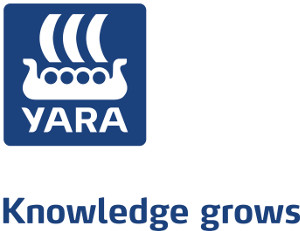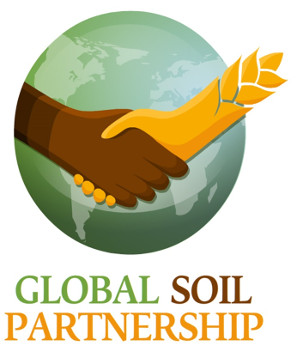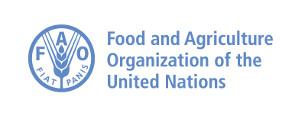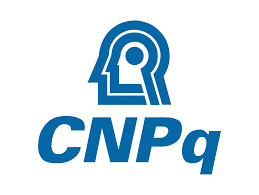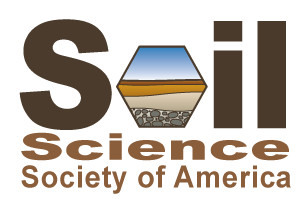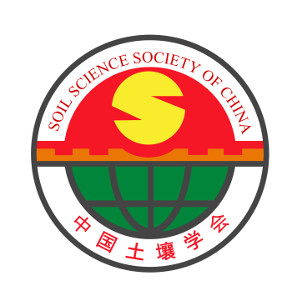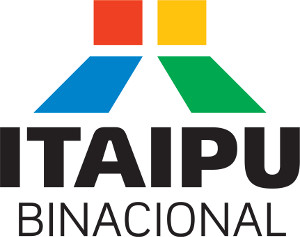Abstracts topics
C4.1 - Soils and the Environment
C4.1.1 - Soil ecosystem services
Soil provides many ecosystem services, as its multi-functionality is the basis for food production, water filtration, nutrient cycling, and other essential goods for life. Soil processes and functions are fundamental to assess ecosystem services and the effects of land use and management on them. Soil ecosystem services appears as an interdisciplinary approach to integrate science and policies. After the Millennium Project, much interdisciplinary research has been developed worldwide aiming to understand human impacts on both ecosystem flows and processes and to assess the costs and the benefits of ecosystem services. To present and discuss the state of the art and importance of ecosystem services; study cases of soil ecosystem service approach and the gaps and opportunities to support decision makers and policies.
C4.1.2 - Climate change and adaptation of soil functions
Climate change is now common issue and there is plenty of data showing its impact on the functioning of the planet. We need to understand influence of climate on soil ecosystem services and functions in future environment. Climate change is an urgent issue for preparing countermeasures and adaptations for changing environment. Because soil is a sink and a source of greenhouse gases, several options, enhancing sequestration of CO2 and reduction of GHG, would be possible by manipulating soil processes. In this session, we share progress of latest studies and information of challenges for technological innovation.
C4.1.3 - Soil in the Anthropocene
The Anthropocene is a culturally constructed concept for the most recent geologic era in which humanly produced traces of industrialized societies, such as pharmaceuticals in the pedosphere, POPs in the hydrosphere, and carbon dioxide in the atmosphere, are irreversibly left in the geologic record of the Earth for a predictably long duration with unknown consequences. The need for understanding the complex implications of the Anthropocene for all life on earth is clear: in addition to empirical observations of the natural sciences, cultural research, reflection, and engagement with societies is necessary for making any attempts to mitigate or adapt to an uncertain future. With a focus on soils, this symposium brings together soil scientists, social scientists, philosophers, environmental economists, artists, activists, and urban planners to address transdisciplinary knowledge demands of the Anthropocene regarding challenges of land-grabbing and water rights, post-crisis agriculture, and planetary change in the critical zone.
C4.1.4 - Soil as natural capital: Economic and legal dimensions of ecosystem services.
The natural-capital concept integrates economic thinking with ecological principles by considering nature’s stocks of materials and energy as capital. Ecosystem services are beyond food & fuel. We need to develop valuations and policies and enable laws to protect them, and to drive changes that ensure investment into ecological infrastructures are maintained and enhanced. Present and discuss the theory and practice of ecosystem services thinking in policy development and legal arguments to ensure that soils are protected so that they can provide the ecosystem services sought from farmers, stakeholders and communities.
C4.1.5 - Carbon sequestration potential of soils
Given the huge size of the soil organic carbon pool compared to that in the atmosphere, increasing net soil C storage by even a few per cent would represent a substantial attenuation of climate change. Rendering soils « climate smart » requires however an understanding and assessment of the organic carbon storage and sequestration (i.e. net storage of C in long lived pools) potential of different soils. This session will focus on how to estimate the organic carbon sequestration potential of soils, using soil databases and maps, biogeochemical modelling or carbon saturation concepts, at various spatial scales.
C4.2 - Soils, food security, and human health
C4.2.1 - Soil and Human Health
Soil properties and management have been shown to be critical to human health. However, the scientific study of these relationships is still in its very early stages. It is important that we bring increasing attention to the need to investigate links between soils and health and that we expand that discussion beyond just soil scientists by including scientists and professionals with backgrounds in natural, social and health sciences. This session will seek to bring together scientists with interests in the links between soils and human health from diverse backgrounds to discuss the current status of our knowledge and future research needs.
C4.2.2 - Soil quality and food security in the tropics
The ability of a nation in producing food in quantity and in high quality is related with the soil quality. Most of the soils of the tropical regions present high acidity and low fertility, which affect the crop's sustainability. Therefore, the success of crop on infertile soils is highly dependent on lime and fertilizer inputs. The management gathering minimum/zero cultivation, proper acidity correction and four rights (4R) for fertilizer application is essential to improve the soil fertility, and thus to reach the status of soil quality and yield in quantity and quality. We propose this session to join people interested in present, learn and apply the state of art knowledge on improving soil quality to achieve long term food security on infertile tropical soils.
C4.2.3 - Soil quality to secure human and environmental health
Soil quality is an account of the soil's ability to provide ecosystem and social services through its capacities to perform its functions of maintaining biodiversity and productivity, partitioning water and solute flow, filtering and buffering, nutrient cycling, and providing support for plants and other structures, under changing conditions. Soil quality reflects how well a soil performs its functions and is directly affected by its use and management. A healthy soil is essential to warrant health for humans and for the environment. It can be assessed, measured and valued. This session is proposed to present and discuss new concepts and developments on the subject.
C4.3 - Soils and land use change
C4.3.1 - Ecological soil management systems and soil quality
Modern agricultural systems are at a turning point nowadays. They demand great energy and fossil fuel consumption and lead to soil degradation which results in reducing ecological survive. It is necessary to develop systems for ecology-based soil management, such as agroecological farming, which provide us multi-ecological services through running agriculture. Besides agriculture, parks, garden and green spaces are also sometimes maintained by ecology friendly ways. The purposes of this session are to present, share and discuss eco-friendly soil management systems from several regions and land-uses, and key practices that can be up scaled.
C4.3.2 - Assessment and inventory of land use change under the SDG´s perspective
The acceptance of the 17 Sustainable Development Goals (SDGs) by the United Nations General Assembly in September 2015 offers unique opportunities for soil science because several land-related SDGs will require substantial input from the soil science professionals. Surely one very important input is to have good tools and overviews on past and present land use changes. With membership in more than 100 countries, the IUSS is in a unique position to initiate this activity. The objective of the symposium will be to analyze procedures, to derive common approaches and to explore in what way certain countries can be supported by expertise obtained elsewhere.
C4.4 - Soil education and public awareness
C4.4.1 - Soil science education in the 21st century
The objectives of the session are to present and discuss new approaches and technologies that can be used to engage students in learning about soil, that produce graduates with good problem solving and effective communication skills and provide examples of teaching practices that are relevant to a range of disciplines needing good soil science knowledge.
C4.4.2 - Soil education and public perception of soils
The aim of this session is to bring up, share and discuss challenges and advancements in soil formal and non-formal education and how this is reaching out to make soils meaningful and essential to life for different audiences.
C4.4.3 - Placement and accreditation of soil science in the workforce related to natural resources
The objectives of the session are to explore the role of soil science in national and international policy and legal frameworks, to discuss what educational strategies will best service preparing graduates for this emerging need and approach the role and needs of accreditation in soil science education.
C4.5 - History, philosophy, and sociology of soil science
C4.5.1 - Integration of historical, philosophical and sociological worldviews to secure and sustain soils in the future
We know that peoples beliefs and valuation of soils, nature, and land in context of socio-cultural systems impact not only how soils are used, but also how they are degraded or sustained. We invite paper submissions that synthesize and integrate data, knowledge, models, philosophies, histories, social theories and worldviews that bring forth new insights and wisdom to secure and sustain soils in the future In this symposium we explore the value and potential of more integrative worldviews that synthesize soil-centric, agro-centric, eco-centric and anthropo-centric worldviews focused on enhancing harmony, health, and resilience of soil resource that sustain life on Earth.
C4.5.2 - Foreseeable breakthroughs in soil science
Soil science has made large contributions to human welfare and the environmental stewardship of our planet. Many of the soil science contributions have come from a fin combination of deep understanding applied to practical issues regarding the management of soil resources. Soil science experiences a renaissance as novel ideas are combined with rapidly advancing technology. This occurs in almost all of the sub disciplines including soil microbiology, soil physics, pedology and soil chemistry. This session will contain some key papers on foreseeable breakthroughs in soil science that will enhance the discipline in many ways. The objectives of the session are to present ideas on a wide array of soil science topics and what innovations can be predicted for the future.
Working Groups
WG15 Cultural Patterns of Soil Understanding A: Anthropological, psychological, religious and spiritual perspectives on soils
As living soil supports all terrestrial ecosystems, and as the only global threat to earth's soil comes from human societies' land use and resource-consuming activities, human soil relation is an issue for soil science community, too. Human soil relation it is a cultural phenomenon of first order, that needs an inter and trans disciplinary approach for better understanding. The objective of this session is to make evident the importance of cultural patterns and psychic background by case studies and overviews on different cultural areas.



